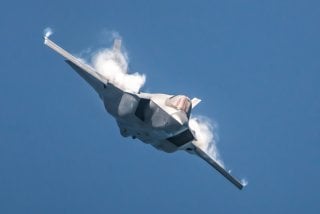Is a U.S.-China War Inevitable?
Washington must use its worldwide leverage to encourage its allies and partners to downgrade their ties with the PRC and demonstrate unity against China.
A new era of great power rivalry has returned to the center of the global stage. The defining question is whether a U.S.-China war is inevitable. Whether this great power rivalry will allow them to pursue competitive coexistence or if they can expect increasing levels of confrontation and mutual deterrence. Washington and Beijing are now locked in a strategic rivalry that will determine the rules, norms, and institutions that govern international relations for many decades. Indeed, strategic rivalry between the two powers is escalating, encompassing multiple domains and geographies.
The rise of China as the challenger to U.S.-led Western dominance has revived interest in great power transition theory, which posits that conflict is likely when a rising power seeks to overtake a status quo power and gain hegemony. The rising U.S.-China tensions constitute a core element of a rapidly changing international order. Much of the stress stems from Washington’s effort to curb the PRC’s growing global economic and geopolitical influence. The U.S.-China great power rivalry involves full-scale, full-spectrum, strategic competition for wealth, power, and influence within East Asia and globally. It features competing ideals and models for political governance and economic development, along with competing views on the structure and rules of the world order, all rooted in competing interests. Each side is determined to maximize its global position and freedom of action relative to the other.
During the power transition process, U.S.-China strategic interactions (confrontation and competitive coexistence) can expect increasing levels of confrontation (especially in the technological dimension), and they need to build a coordinated mechanism to manage and mitigate these tensions (competitive coexistence). Competitive processes may take various forms and do not necessarily terminate in a war or conflict. The two great powers are profoundly interdependent and share joint responsibility for the world. Therefore, avoiding large-scale military disputes should be a common desire for both sides.
Finally, U.S.-China competition will become increasingly entwined with rivalries between China and U.S. allies and partners. When managing relations with China, the Biden administration must consider the independent dynamics of those rivalries. The United States needs to use its worldwide leverage to encourage its allies and partners to downgrade their ties with the PRC and demonstrate unity against China. Competitive coexistence requires Washington to maintain and nourish its security guarantees to allies alongside active efforts to maintain an economic, technological, political, and diplomatic presence.
Dr. Mordechai Chaziza is a senior lecturer at the Department of Politics and Governance and the Multidisciplinary Studies in Social Science division at Ashkelon Academic College (Israel) and a Research Fellow at the Asian Studies Department, University of Haifa, specializing in Chinese foreign and strategic relations.
Image: Creative Commons.

